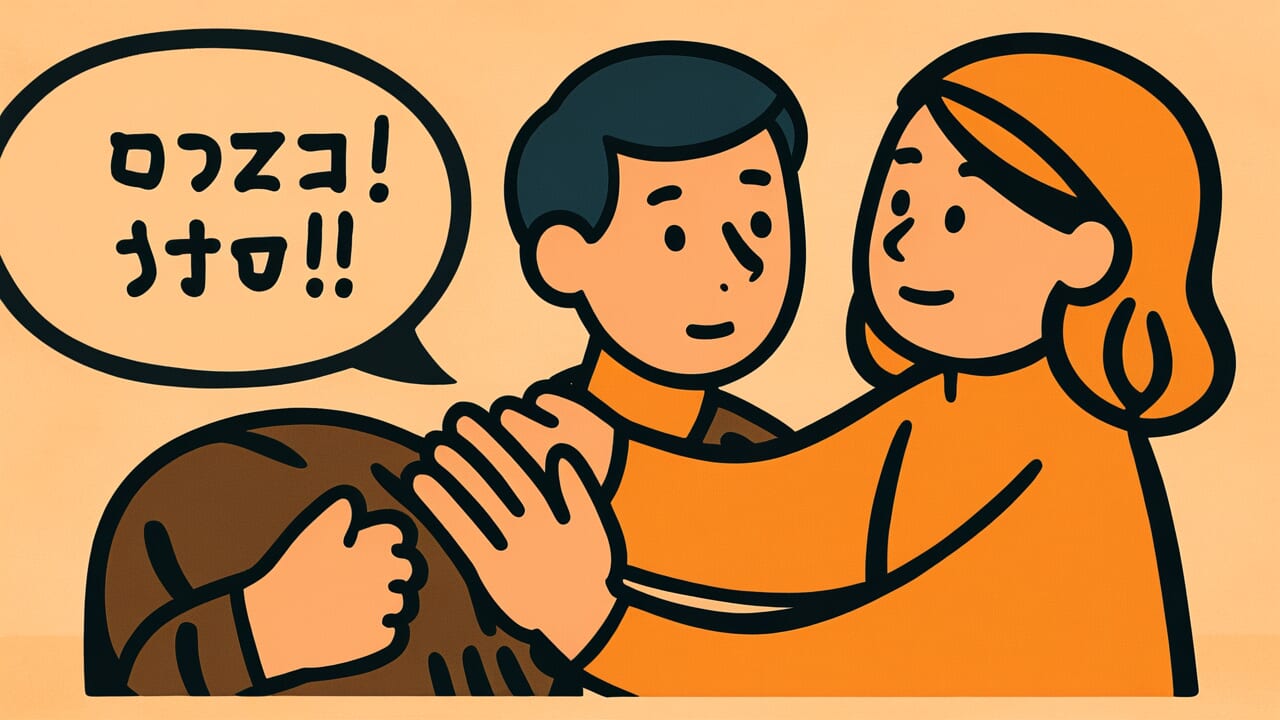How to Read “Giving kind words to people is warmer than cloth”
Hito ni zengen o atauru wa fuhaku yori mo atataka nari
Meaning of “Giving kind words to people is warmer than cloth”
This proverb means that speaking warm words to someone touches their heart more deeply than any material gift.
Even expensive cloth or silk clothing only warms the body. But thoughtful words reach deep into the heart and leave lasting warmth.
Words of encouragement, gratitude, and appreciation carry value that no物 can replace.
A gentle word to someone feeling down, cheering words for someone working hard, or comforting words for someone sad can light a flame in their heart. These words give people strength to live.
Modern society often focuses on material wealth. But this proverb teaches that heartfelt words truly make people happy.
With email and social media dominating communication today, we need to rediscover the power of warm words.
Origin and Etymology
This proverb likely comes from ancient Chinese classics. “Fuhaku” means cloth and silk, which were treasured gifts in ancient China.
In cold regions especially, warm cloth and silk clothing were essential supplies that protected lives.
“Zengen” means good words or warm words. The character “煖” (atataka) means warm, just like “暖.”
The proverb expresses that warm words touching the heart warm people more deeply than cloth and silk that warm the body physically.
Confucian thought in China emphasized the power of words. When Confucius was asked about a principle to follow throughout life, he spoke of “forgiveness” or compassion.
This proverb likely emerged from this tradition that valued words and virtue.
It came to Japan through Chinese texts and appears in Edo period moral instruction books.
As a proverb symbolizing Eastern values that treasure heart-to-heart connection over material wealth, it has been passed down through generations.
It conveys a simple yet profound truth: you can warm someone’s heart with just one word.
Interesting Facts
The word “fuhaku” was even used as currency in ancient China. That shows how valuable it was.
One bolt of silk equaled several months of food expenses for common people. It was extremely expensive.
Understanding that “zengen” was said to be more valuable than such precious items helps us grasp the weight of kind words.
The character “煖” in this proverb is rarely used today. But it was preferred over “暖” when expressing warmth of heart.
Using the sun radical instead of the fire radical expresses a soft warmth like sunshine.
Usage Examples
- Her single word of encouragement made me happier than any expensive present. Truly, giving kind words to people is warmer than cloth.
- My boss’s warm words once saved me. They say giving kind words to people is warmer than cloth, and I really believe that’s true.
Universal Wisdom
Humans seek material wealth while also hungering for warmth of heart.
No matter how blessed with possessions, hearts freeze when surrounded by cold words. But even in poverty, hearts stay rich when wrapped in warm words.
This proverb has been passed down for hundreds of years because it sees through human nature.
We all have fundamental desires to be recognized, understood, and valued. Warm words fulfill exactly those needs.
What’s interesting is that words don’t diminish anything for the giver.
Giving cloth or silk means losing it from your hands. But you can give warm words again and again to anyone.
Better yet, people who habitually give warm words tend to receive warm words from others too.
The essence of human relationships lies not in exchanging things but in connecting hearts.
Our ancestors understood that the invisible power of words truly connects people.
This wisdom holds even more meaning in our modern world of advanced material civilization. Perhaps especially because of that advancement.
When AI Hears This
The warmth of cloth follows thermodynamic laws and inevitably cools. No matter how fine the fabric, body heat diffuses into surrounding air.
Within hours, it reaches room temperature. This is entropy increase, where physical order moves one-way toward disorder.
But kind words have completely opposite properties. When the human brain stores words as memory, it converts them to long-term memory linked with emotion.
During this process, neural circuits physically reconstruct, and those words are stored semi-permanently.
More fascinating is that people who receive warm words tend to want to share them with others.
Psychology calls this the “pay it forward effect.” Experiments confirm that goodwill propagates while amplifying 1.5 to 3 times on average.
So cloth warmth approaches zero over time, but word warmth multiplies over time.
One piece of cloth warms only one person. But one kind word gets preserved in memory while simultaneously copying to multiple people.
Matter faces thermodynamic constraints, but information can amplify beyond constraints.
This proverb brilliantly contrasts the fundamental difference between the world ruled by physical laws and the world ruled by information, using the common sensation of warmth.
Lessons for Today
This proverb teaches modern people that your words have more power than you imagine.
In an age when we communicate easily through social media and messaging apps, why not pay attention to the weight of each word?
In our busy daily lives, we tend to use only businesslike words. But adding just a little heart transforms those words into gifts that warm hearts.
Add “thank you always” to “good work.” Follow “are you okay?” with “is there anything I can help with?”
Such small considerations brighten someone’s day.
What matters isn’t preparing expensive presents. It’s expressing your caring feelings in honest words.
The words don’t need to be perfect either. Even if clumsy, words from your heart will surely reach the other person.
Start today. Give warm words to your family, friends, and colleagues.
Those words will warm your own heart too.



Comments